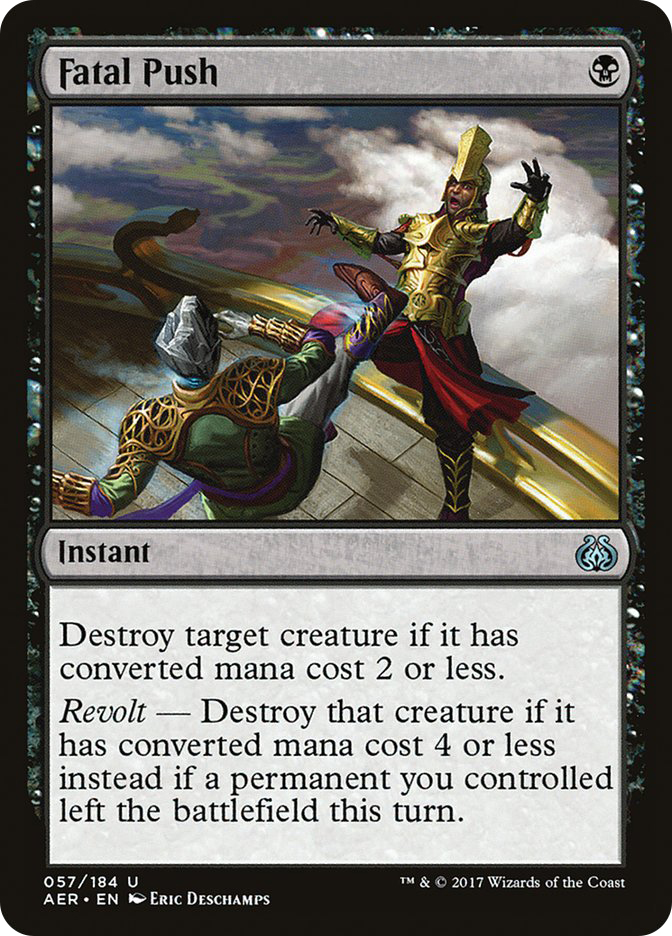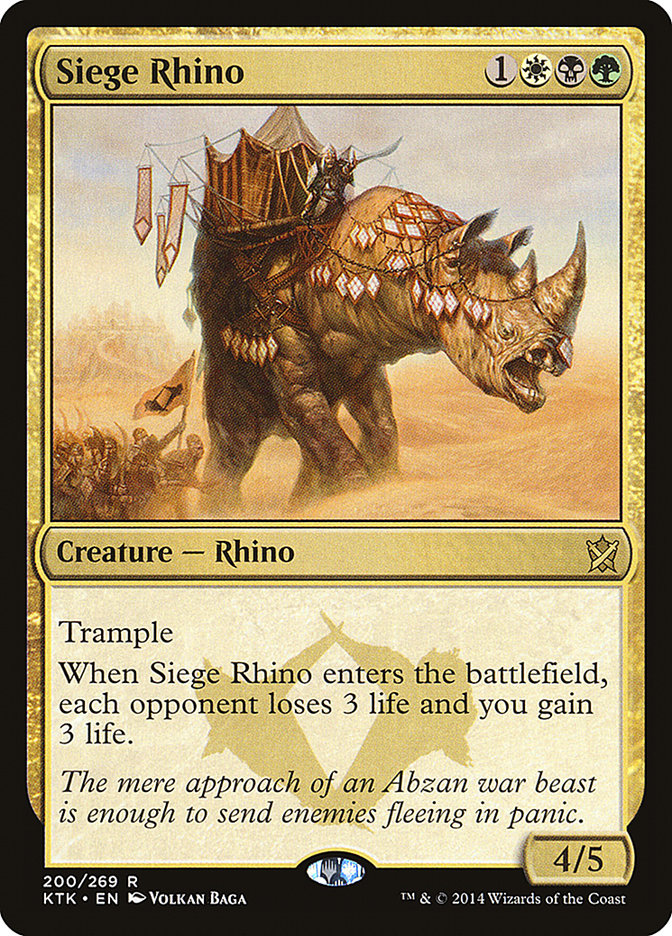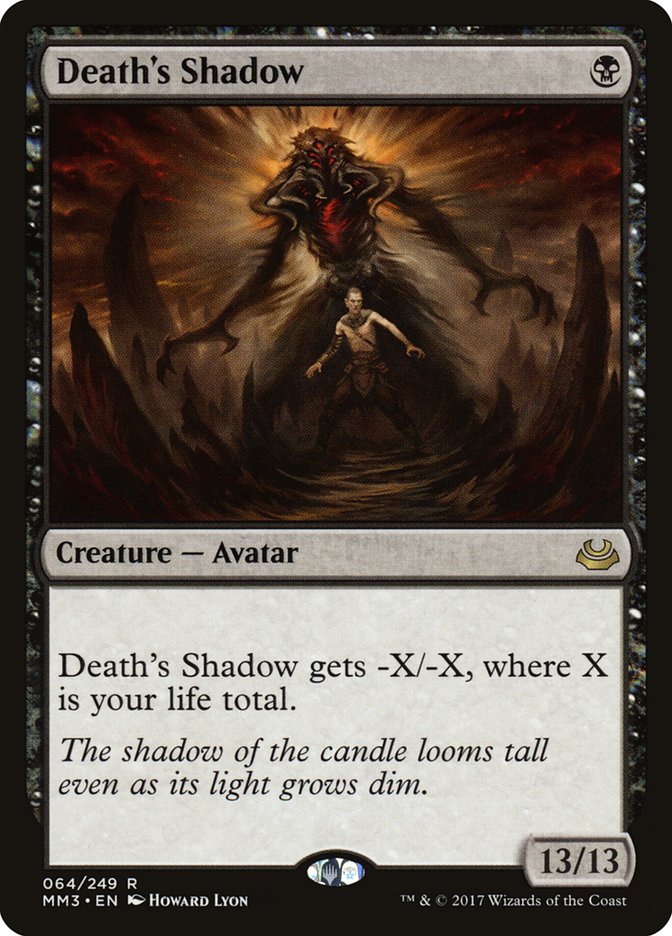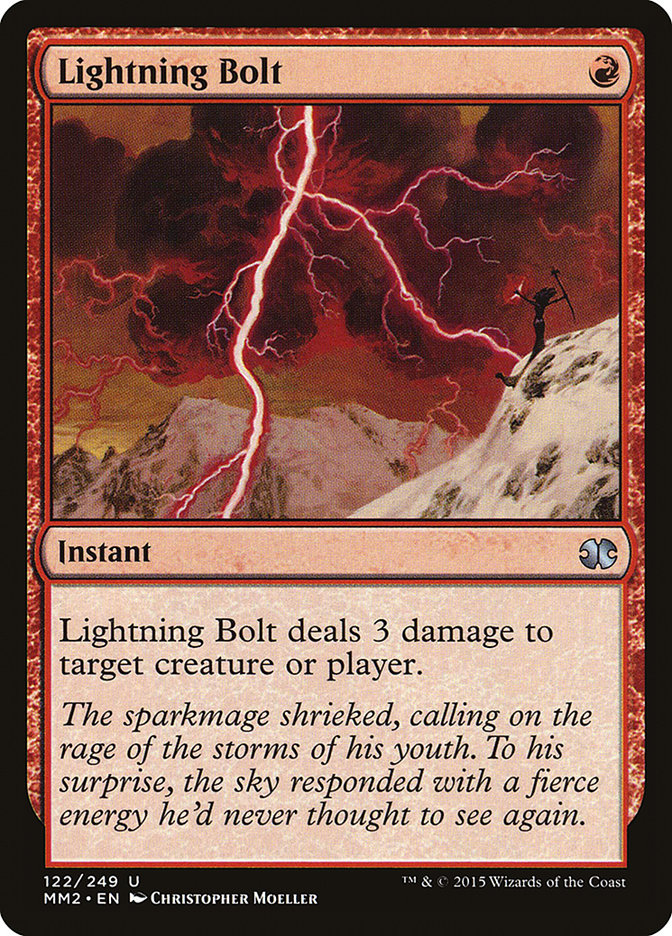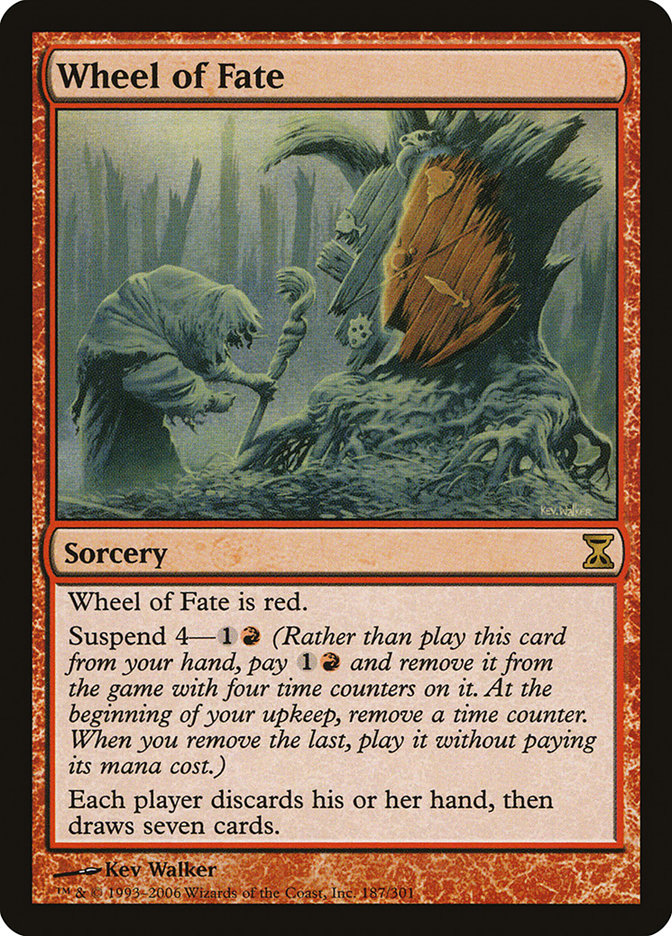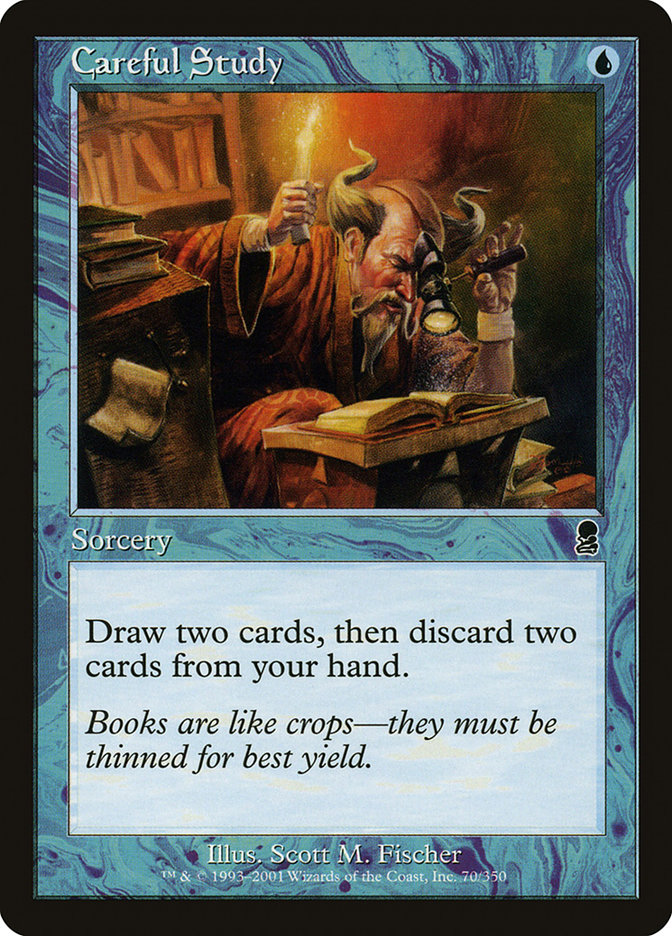Last week I found it pretty entertaining to title my article “Grand Prix Montreal *364th*!“. You know, because that’s not a place worthy of titling a piece of work after. Little did I know a finish that would actually justify such an illustrious title was soon on its way. Now I’m troubled by either coming off sounding repetitive using it again, or needing to figure out another hook to get people to read my work. When will I catch a break?
I haven’t really won that many tournaments in my career, even though I’ve given myself an abundance of opportunities to do so. The cards just never fell in a way to give me that Spiky career so many of my peers have had. Don’t take this as a complaint, though. I’ve always been appreciative of what I’ve accomplished in this game, and this past weekend was no different. I would have still been satisfied with missing Top 8 on tiebreakers after a respectable 12-3 finish. I would have accepted being taken out by Todd Stevens in the quarters, Jacob Haversat in the semis, or Ben Friedman in the finals. After all, I was on the draw in all three of these matchups. Of course I wanted to win the tournament, but all I cared about was playing the best Magic I could possibly play. In the end, I believe I was doing that.
Creatures (16)
Lands (19)
Spells (25)

Of course I wasn’t playing perfect Magic. That’s impossible. If you’re going to play Magic, you’re going to make mistakes. It’s just going to happen. Internalizing the fact that the only thing you can control is your personal likelihood of making mistakes is the most important lesson you can ever be taught by me, or anyone else you respect enough to heed their advice. Holding a trophy is nice, but feeling that you deserve to be holding the trophy is much different, and much more satisfying.
Now, I didn’t go into #SCGBALT thinking I was going to win, or come anywhere close to winning. In all honesty, I didn’t even know if I would be going to the event during the middle of the week.
Should I go to #SCGBALT this weekend, or take a weekend off before a long string of GP?
— Brad Nelson (@fffreakmtg) May 25, 2017
I just got back from a disappointing finish at #GPMTL, and thought I needed a break. Also, with #GPOMAHA on the way, I thought I needed to get my bearings in Standard before worrying about any other format.
Then Willy Edel tweeted about an Abzan deck, and all my logic went out the window.
Finished in the top8 of the Modern Challenge with this. Highly recommend to BGx fans to play at the modern GP. Will write about it this week pic.twitter.com/9qI6MCjucb
— Willy Edel (@bazardebagda) May 20, 2017
I love me some Abzan. Even back when “Jund Guy” surfaced, I still secretly loved Abzan more, but I thought it was the worse of the two as far as midrange decks went. Then Death’s Shadow Aggro came along to distract me for some time. Gitaxian Probe got banned, which put me back to square one, but also Fatal Push forced me have to hang up the Jund hat. I was left without heart, and home.
To another eye this deck looked like just another Abzan deck, but to me it was nirvana. A chance to get back to simpler times when I valued a high life total, grinded my opponents out, and cast Siege Rhinos. I put down the Aetherworks Marvels and picked up another Edel brew!
For a while, I liked this deck. It was everything I loved to do in Modern, but no level of passion was getting my win percentage above 60%. My opening hands were less than satisfactory, often it felt underpowered to what I was competing against, and it still had trouble with all the same matchups Abzan decks have in the past. It felt to be great against Death’s Shadow variants, anything Collective Brutality was good against, but that’s about it. Even though I wanted to smash face with Tarmogoyf this past weekend, I knew it would be an irresponsible decision on my part.
Without a deck, I was only left with an itch. Modern’s never been my cup of tea, but compared to Standard as of late it’s practically a delicacy. All these decisions I was making in gameplay were enticing me to find a replacement for my now-lost Abzan aspirations. The only question: what could convince me to leave my house?
It didn’t take long for me to look into decks supporting my second-favorite 13/13 of all time. The only issue was that I didn’t have much faith in normalized Four-Color Death’s Shadow anymore. My reasoning was that the metagame has begun hating it out with decks like Eldrazi Tron and Burn, but also these Willy Edel Abzan variants. It just didn’t seem like enough good matchups for the deck were left. That, and the fact that Counters Company was the new flashy deck that seems to have a significant advantage over the deck.
Creatures (30)
- 4 Birds of Paradise
- 4 Eternal Witness
- 4 Devoted Druid
- 4 Kitchen Finks
- 3 Noble Hierarch
- 1 Viscera Seer
- 1 Scavenging Ooze
- 1 Fiend Hunter
- 2 Duskwatch Recruiter
- 2 Walking Ballista
- 4 Vizier of Remedies
Lands (22)
Spells (8)

It was time to eat crow and come crawling back to Michael Majors, who believes Grixis Death’s Shadow is beyond broken. I never had the same impression when I initially tested the deck, but now it seems primed to do well. The deck doesn’t share the same bad matchups as Four-Color Death’s Shadow, which would be the boon for playing the deck. It might be a slight dog in the “mirrors,” but I didn’t expect the metagame to be too dense with Death’s Shadow decks. Like I said, the new hype surrounded Devoted Druid.
I scoured the Internet for the most stock version of the deck, played two Leagues, and rallied the troops to head towards Baltimore. I didn’t have high hopes on a good finish, but I expected a fun time.
Grixis Death’s Shadow is a challenging deck to play. Almost every card in the deck costs just one mana, making it difficult to sequence, but on top of that, each individual spell has multiple “modes.”
Lightning Bolt, for example, is the deck’s most simplistic spell at heart, but in this deck it can kill a creature, be used as a burn spell, and even act as a pump spell in certain situations. Every land drop has to be analyzed for more than what colors it provides. The deck has decisions atop decisions atop decisions, making it very difficult to pilot. Doing so well is rewarding, however, as the deck is capable of achieving two functionalities that often cause strategies to be banned.
First off, Grixis Death’s Shadow can play as both aggressor and reactor all at the same time. The deck’s ability to deploy a significantly large creature as early as turn 2 will often cause an opponent to center their gameplan around it. From there, the Grixis Death’s Shadow player can do the same, but from a reactive position, constantly foiling their opponent’s plans as they make them. This ability to bottleneck an opponent’s gameplan is how the deck gets its tempo-based wins.
Given how cheap the deck’s spells are, it’s very easy to sit on top of a wide variety of decks in the metagame. What I mean by this is that the deck can almost universally utilize a very effective strategy in Constructed Magic, which is to ever so slightly be bigger than your opponents. This strategy is best noticed in midrange mirrors, where two decks are similar in speed, but one has a few more powerful cards or “haymakers” than the other, cards that “sit on top” of their opponent’s spells. Normally this only occurs in a select amount of matchups for any given deck, but Grixis Death’s Shadow’s unique cheapness-to-power ratio is so efficient that the deck can deploy this strategy against almost any deck that isn’t abusing big mana. This is how the deck gets its midrange-based wins.
In all honesty, no deck should be this efficient across the board. Outside of the Death’s Shadow mirrors, I don’t think it has a truly bad matchup, but that is coming from someone who doesn’t know the deck that well yet. I’m constantly staring at the cards in my hand with no idea how to properly sequence them. It’s tough to do things correctly when you have the options of doing any of them in any order. The possibilities are just endless with this deck, given how cheap and powerful everything is. Going into #SCGBALT, I knew I couldn’t play the deck to peak efficiency, but picking it was probably the correct decision.
A Few Hours Later…
Fast forward to Sunday evening. I was somehow holding the trophy once all the dust settled. It was just as much of a shock to me as anyone else that I successfully piloted my way to winning the whole thing. Still, as I write this article, it hasn’t really sunk in. Not like it was this unbelievable feat that I could never imagine achieving, but for the first time ever, I felt I didn’t have the tools to win a tournament I did. Normally, if I end up victorious, I felt it coming well before it happened. I tended to have well-tuned decks I knew very well and understood all the situations I would encounter during the event itself. This time around felt like I was shooting in the dark with a pistol I didn’t even know how to load.
There’s probably a lesson in there about playing the “best deck” you’re unfamiliar with rather than a weaker choice you know well, but that’s not on today’s curriculum. Today’s lesson is simply that you should only care about being your best, no matter the situation. I played a deck I was unfamiliar with very well, because for years that’s what I’ve put emphasis on. I didn’t have external pressures like getting Pro Points to get Platinum or qualify for Worlds.
I just wanted to play good Magic.
When I lost a match, I felt the same as when I won one. Instead of conversations about what I needed out of the weekend to achieve my external goals, I discussed interesting plays I may have screwed up. All in all, I did what I’ve always preached my audience to do, and it was very refreshing after coming off the high-pressure roller coaster that is my career.
I had an absolute blast in Baltimore this past weekend, and that’s something I can’t say about tournaments I’ve been playing in the past few years. I don’t think it’s an “Open thing,” even though I honestly believe the atmosphere at Opens tends to be better than at any other professional-level events. Last year, when I was playing Opens, I had ulterior motives for being at them. I was trying to qualify for the Players’ Championship, even though I was behind most of the field in my attempts. I was behind the 8-ball, so to speak, which caused me to put pressure on myself to succeed. Every match mattered, and the buildup to how I would finish each event was palpable. Without even knowing it, I’d become someone who needed to succeed, not someone who just needed the tools to be able to succeed.
Results-oriented thinking is discussed in the competitive community quite frequently, but it’s still frequently practiced, even with its stigma. “Winners did something right and losers did something wrong” is often the story, regardless of what those individuals have to say. This storyline used on the bigger stages of the game trickle down and affect how others approach their own games.
Take this past weekend, for example. I could have just spoken about how I’m great (which is true), how good Grixis Death’s Shadow is (also true), and how I left 899 people in my wake as I crushed #SCGBALT (factually correct). Since I won, it would have been justified, even though it would clearly be unprofessional malpractice. It still would have been accepted, even though winning or losing in this game shouldn’t be the main argument when peddling opinions.
You have to be constantly aware and in complete control of what’s actually causing you to win or lose. I didn’t win this past weekend because I was as prepared as I normally wanted to be. I won because I used the skills I’ve honed over time, obviously got lucky in just enough spots, and didn’t put external pressures on myself that I’ve unconsciously been doing as of late.
I was just playing Magic until someone told me to stop.
It’s important to remind myself of this lesson from time to time. I used to have it down pat, but it seems I’ve lost it recently. Maybe that’s due to being in a position to continuously qualify for the World Championship and Players’ Championship each year, or maybe that I’m going to be up for Hall of Fame in a couple of years. I don’t actually know why I’ve forgotten this vital lesson, but I do know it’s time to relearn it. It’s crucial to not care more about how you’ll finish than making sure you have the tools to finish well, or you run the chance of accidentally sabotaging those chances before you even get them.
The road to success in competition is never-ending as long as you’ve made the conscious decision to continue on it. What happens in your journeys will sometimes be worse than expected, sometimes better, but the constant should always be trying to improve your chances. After all, that’s really all you’re giving yourself as you embark on the journey. Normally the more chances you give will yield more opportunities to do well, but that’s only true when you’ve honed the tools needed to succeed. That doesn’t always mean you will, but would we really be doing this if it were easy?

I stand corrected.


